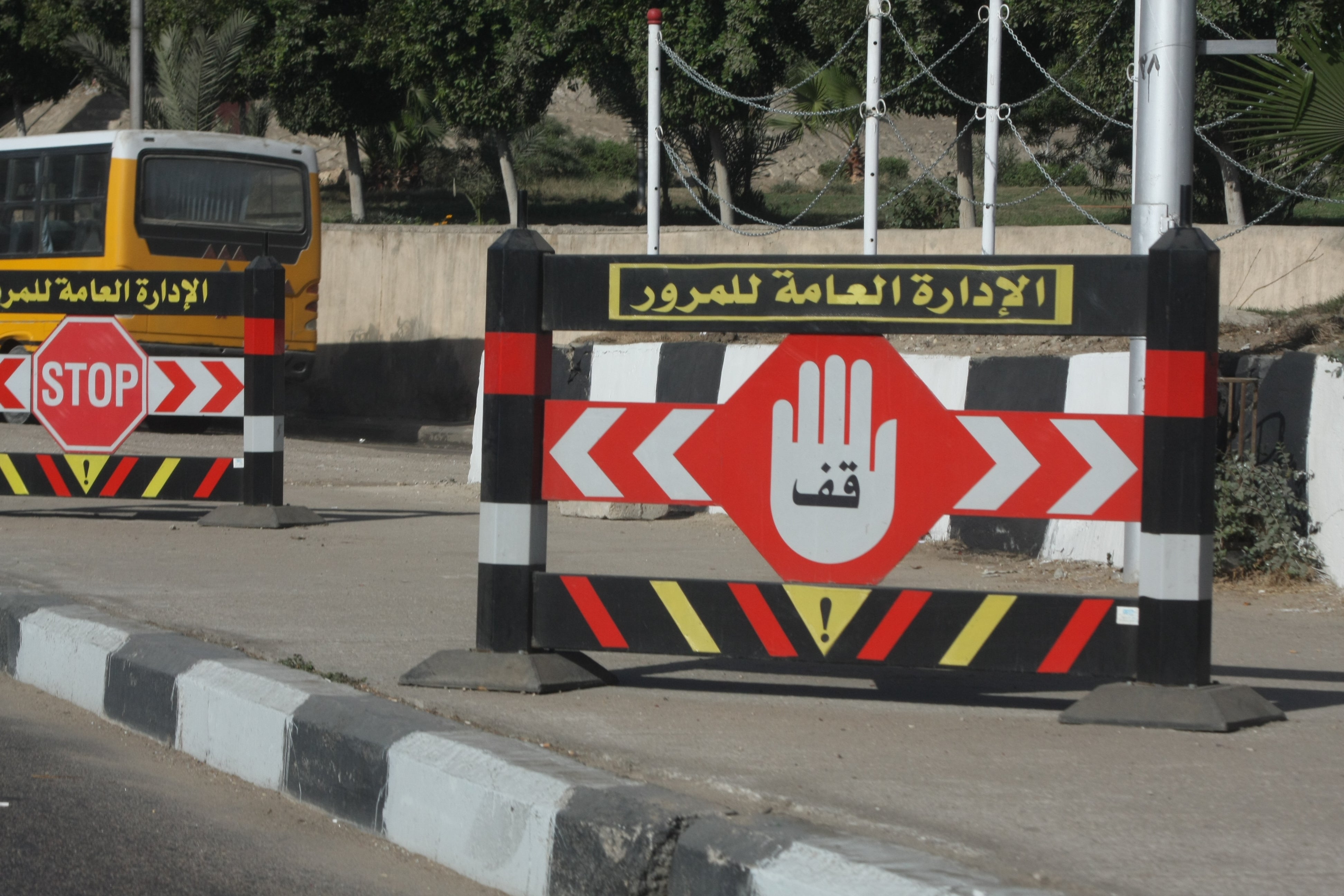Will the conflict in Gaza affect my travel insurance?
Simon Calder answers your questions on Berlin, holidays in Bali, and staying safe in the Middle East


Q I have a long-anticipated trip booked for Egypt later this month: starting in Luxor then travelling to Cairo, visiting the key sights. Should I be concerned by the conflict in Israel and Gaza? Also, my travel insurance doesn’t cover Foreign Office “no-go” areas. Last time I checked, Luxor and Cairo were regarded as safe to visit. Does that mean that they are OK for insurance coverage – or is the entire country excluded when some of it is off-limits?
Pamela G
A The violence that has unfolded since the Hamas assault on Israel on 7 October is heartbreaking, with thousands killed. But as far as I can see there is very little risk to travellers to mainstream destinations in Egypt, Jordan and other nations in the region that cater for tourists.
From your point of view, the fighting is taking place over 300km away from Cairo and much further from Luxor. I presume your two-centre itinerary involves flying or taking the train between the cities. Driving standards in Egypt, though, are poor.
Cairo, Luxor and other locations on the Nile (all the way from the Sudan border to the Mediterranean), are regarded as safe enough by the Foreign Office – along with the entire Red Sea coast, which includes the resorts of Hurghada and Sharm El Sheikh. In terms of area, the Foreign Office “no-go” zones actually cover more ground than the safe territory. But these off-limits areas are also off the tourism circuit.
The travel insurance issue is straightforward. A country having some places with a no-go warning presents no problem, provided you keep in the safe areas: you are covered except if you visit a location that the Foreign Office says is too risky.
For completeness: in the unlikely event that the Foreign Office should decide to warn against travel while you are in Egypt, your travel insurance remains valid. The presumption in this circumstance is that you will seek to leave the country by safe means as soon as is practical, which should be facilitated by airlines and the Foreign Office.

Q Can you recommend the best route to fly from Scotland (Edinburgh or Glasgow) to Bali? Also, I keep hearing that Bali is very busy – so is there a good time of year to go?
Grace E
A The best journey between Scotland and the Indonesian island of Bali is, in my opinion, one that you take slowly – with at least one stopover along the way. At the very least you should reward yourself with a stay in Istanbul. Turkey’s largest city is an excellent hub for many destinations in Asia, including Bali, and is barely a four-hour hop from Edinburgh on Turkish Airlines. Furthermore, you can actually get government help to pay for your stay, in this sense: spend at least 24 hours in Istanbul and your Air Passenger Duty liability falls from £91 to £13. The £78 saved is more than enough for a decent hotel in the city.
Onwards from Istanbul, the flight to Denpasar is over 12 hours, but fortunately the aircraft used is the excellent Airbus A350 – my firm favourite for any long-haul flight. The main alternative, also from Edinburgh, is on Qatar Airways via Doha. The Qatari capital is no match for Istanbul in terms of culture and cuisine, but in the depths of winter – November to February – the weather will be far better.
In terms of timing for Bali: the crowds are most intense during the dry season, which runs from May to October. If you are tempted to travel at this time, May/June or September/October are better than July/August. Fares will be lower, too: in the peak holiday months for Europe, the cost of flights rises sharply.
Controversially, I suggest you travel in the November-to-April wet season. I have travelled through Bali in January, at the height of the wet season. At times I found the humidity and rainfall annoying – but I also revelled in the absence of crowds, with the local people particularly welcoming.

Q I am writing on behalf of my daughter and her boyfriend. They have a holiday booked to Egypt in November but with the war that’s going on in Israel they have decided not to go because of safety. The holiday company is telling my daughter and her boyfriend that it is safe to travel. What rights do they have in requesting either a refund or a change in destination, for obvious reasons?
David P
A The heartbreaking calamity that is unfolding in Israel and Gaza has implications for travellers. Israel is on the Foreign Office no-go list, and there is no indication when tourism to the nation might resume. Syria and Lebanon are both on the no-go list, but tourist locations in other countries in the region – notably Egypt and Jordan – are regarded as safe, despite the violence in neighbouring territories and regions.
November is when the main tourism season begins in Egypt. Airlines and holiday companies are ramping up services to the capital, Cairo, and to the two main Red Sea resort towns of Hurghada and Sharm El Sheikh.
The travel firms are assuming that flights and holidays will go ahead as normal and in the absence of any official advice to the contrary they can continue to operate – and maintain their normal terms and conditions.
Some companies are offering flexibility, which goes beyond what they are legally required to do. Typically holiday firms are allowing travellers the option to switch destinations – though not the chance to postpone a trip into the future, nor to obtain a refund or voucher. If, though, flights are booked with a budget airline, this option may not be on the table.
Events in Israel and Gaza are moving swiftly and the picture when November begins in 11 days is likely to look very different. There is a small chance that the Foreign Office might place Egypt (and Jordan) on the no-go list, in which case your daughter and her boyfriend will be entitled to a full refund. I cling to optimism that the conflict in Israel and Gaza will have quietened by then.
While I sympathise with anyone who is apprehensive about travel to Egypt (and Jordan), I urge them not to cancel just yet. With the situation as it is now, I would have no hesitation about going – and I am sure I would have a safe and enjoyable holiday.

Q What’s the current travel advice for Berlin?
Tim S
A My current travel advice is to spend as much time as you can in the German capital. Berlin is a city in constant transformation – I aim to visit at least once a year to find out what’s new. My latest discoveries include the extraordinary Tränenpalast (Palace of Tears) at Friedrichstrasse station. During the Cold War, this was the main hub between East and West Germany, and has been preserved as a museum marking those tragic decades. The Humboldt-Institut is also a welcome addition to the city’s repertoire, and its rooftop terrace offers superb views.
I sense, though, that you are more concerned about possible risks to travellers to Berlin. Earlier this week a synagogue in the capital was firebombed. The Foreign Office travel advice currently warns: “Terrorists are very likely to try and carry out attacks in Germany. Attacks could be indiscriminate, including in public places frequented by foreign nationals such as restaurants, markets, shopping centres, places of worship and religious sites, including synagogues.”
Australia’s advice for its citizens travelling to Germany highlights Christmas markets and New Year celebrations as “potential targets for attacks”. It says: “If you visit Christmas markets, avoid busy times. Have an exit plan if there’s a security incident.” But please note that this advice has not been strengthened as a result of the tragic events unfolding in the Middle East.
I am extremely risk-averse and would not hesitate to travel to Berlin or anywhere else in Germany at present – indeed, I am looking forward to a trip through the western part of the country next month. As anywhere, you need to keep aware of your surroundings. If you become aware of unusual activity, try to move away from the location. But conversely, be aware that Berlin full of good people who are mindful of the guests who come to visit their fascinating city. Make the most of your stay.
Email your question to [email protected] or tweet @simoncalder






Join our commenting forum
Join thought-provoking conversations, follow other Independent readers and see their replies
Comments